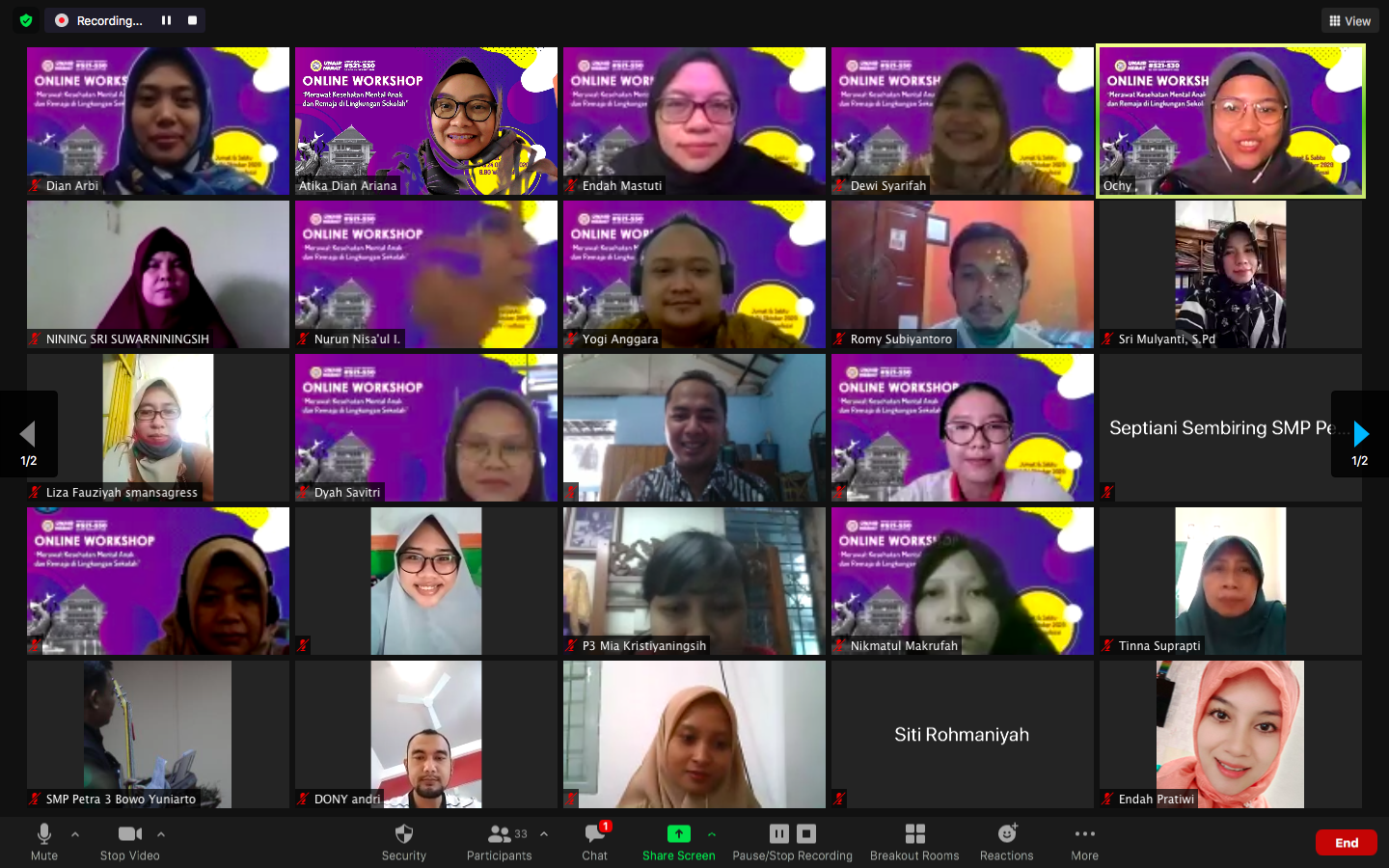UNAIR NEWS – The Covid-19 pandemic has brought significant changes to almost all aspects of life in all countries. The government, through the Minister of Education and Culture, has issued Circular Letter Number 4 of 2020 regarding the implementation of education during the Covid-19 emergency as a response to the pandemic situation. The letter regulates distanced learning, where the entire teaching and learning process starts online starting March 2020. This step was taken to minimize the spread of the Covid-19 virus.
However, over time, distanced learning has brought challenges, from technical aspects such as network constraints and device limitations to health aspects such as physical fatigue and psychological stress.
An initial study conducted by the mental health study group at the Faculty of Psychology, Universitas Airlangga, found that the uncertainty about when the pandemic situation would end and the confusion of Covid-19 information contributed to the anxiety experienced by teachers and parents. Another study also found that children and adolescents showed stress symptoms when participating in online distance learning, including fatigue, loss of enthusiasm for learning, and withdrawal.
This condition encourages the need to take care of children and adolescents’ mental health as a psychological impact of the pandemic. As the spearhead of the teaching and learning process, teachers need to improve competence in identifying and early intervention on the psychological impact experienced by children and adolescents.
On October 23-24, 2020, the Faculty of Psychology, Universitas Airlangga, gave a training for middle and high school teachers on how to take care of children and adolescents’ mental health. This training was a community service project of Universitas Airlangga’s Faculty of Psychology.
The online training attracted 36 teachers from various cities. Atika Dian Ariana, S.Psi., M.Sc., Endah Mastuti, S.Psi., M.Sc., Dewi Syaridah, M.Psi., and Dian Kartika Amelia Arbi, M.Psi., were the speakers for the training.
“This training prepares teachers to deliver DPA (initial psychological support) to students. We designed it to equip teachers with the ability to regulate their own emotions first before implementing DPA, “said Chief Executive Atika Dian Ariana, S.Psi., M.Sc.
Through the training, continued Atika, teachers learned about mental health, the psychological impacts generally experienced by children and adolescents in pandemic situations and strategies for managing emotions.
“The ultimate goal is, of course, for teachers to be more skilled at identifying and early intervention on psychological problems and applying the training’s materials learned in their respective educational units,” he said.
The trainees’ enthusiasm was evident in the discussions as they asked a lot during each session. Participants expected similar training would be offered continuously in the future, with more practical learning activities. The analysis of pre-and post-test data revealed an increase in participants’ knowledge and skills about child and adolescent mental health.
Each participant completed a follow-up plan (RTL) in addition to the pre- and post-tests, which were collected two weeks after the training. The RTL includes strategies for participants to map the psychological conditions of students in their various educational units, as well as interventions and recommendations given.
“We may conclude that the trainees’ knowledge and skills have improved based on the accuracy of the initial identification and intervention plans stated in the RTL. We expect that the benefits of this training will be sustainable, at least in the education unit where the participants originated from, because the school principal approved this RTL, “Atika concluded.
Editor: Binti Q. Masruroh





